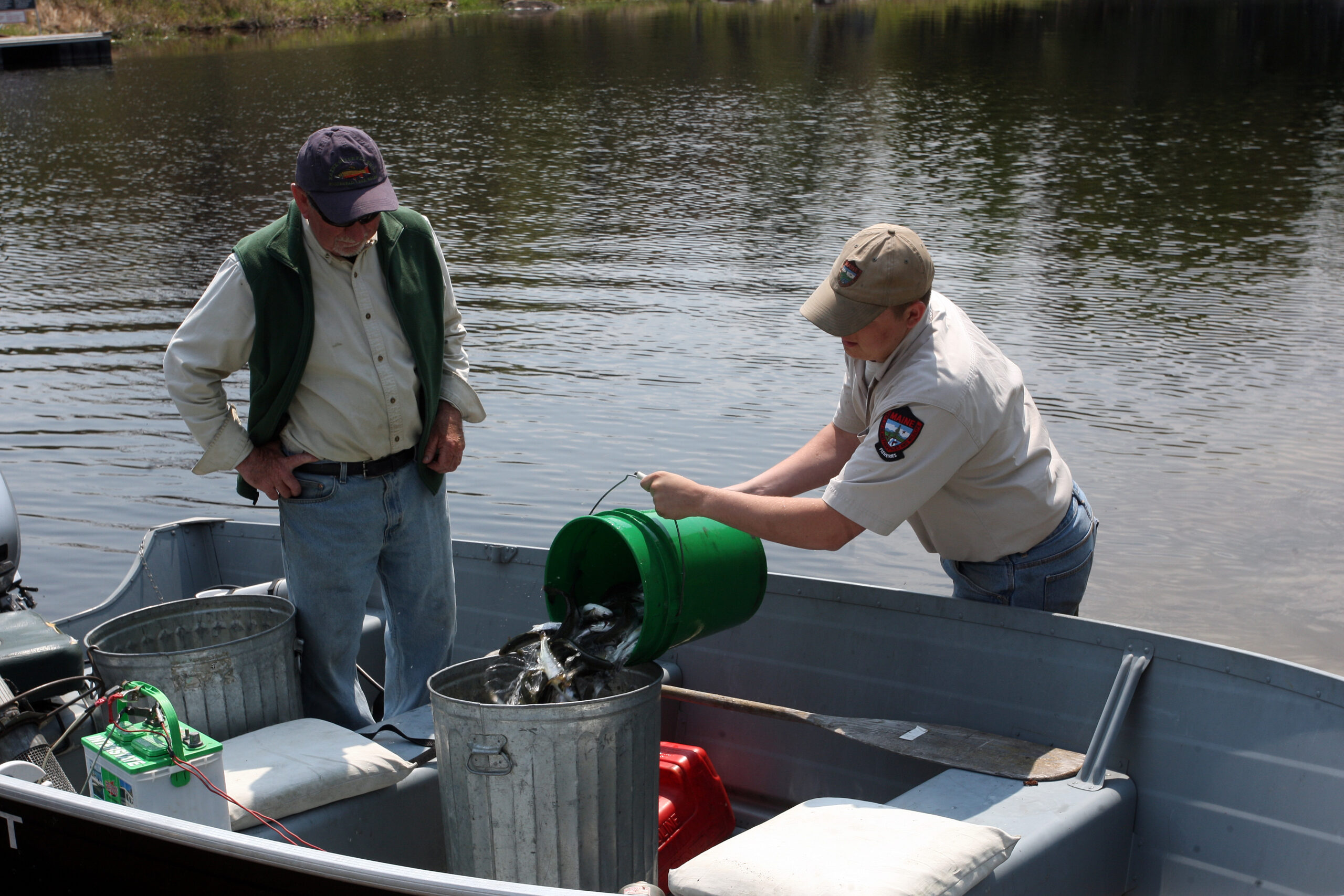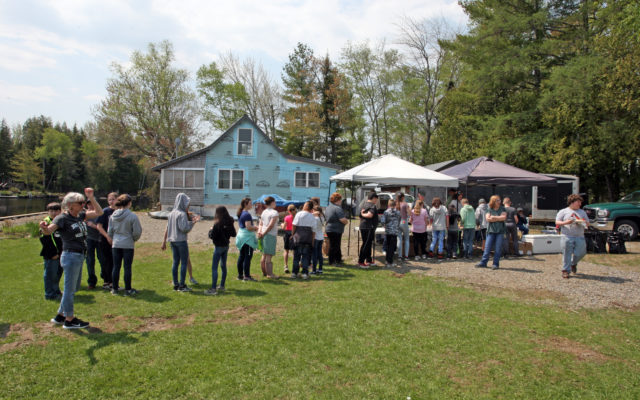
ORIENT, Maine — Middle and elementary school students from southern Aroostook County converged on East Grand Lake May 25 to release baby salmon that had hatched in their classrooms.
The Chiputneticook Lakes International Conservancy hosted the 18th annual salmon stocking into East Grand Lake. The project started in March when the salmon eggs were delivered to local schools. This year, students from Houlton, Hodgdon and Danforth schools, along with the Houlton Band of Maliseet Indians participated in the project.
“We received the eggs a few weeks ago,” said Nathan Foster, a fourth- and fifth-grade teacher at Greater Houlton Christian Academy. “The kids liked seeing them hatch. It definitely generated some excitement in the classroom. And what a great opportunity this is to interact with some of the other schools participating here today.”

Daniel Henderson helps carry a bucket of salmon to be released into Grand Lake in Orient May 25. (Joseph Cyr)
For about two months, students cared for the eggs in their classrooms as they raised between 500 and 800 salmon before releasing them into East Grand Lake. There are four lakes in Maine with landlocked salmon, and East Grand Lake is one that anglers have success fishing thanks to the hatchery and the school project that began in 1994.
Through its development, the fish begins to develop two black dots or eyes and then the yolk sack hatches out and it absorbs food, turning into a thread-like body. The salmon mature into miniature fish about an inch-and-a-half to two inches long before being released.
Students enjoyed a cookout lunch provided by the Chiputneticook Lakes International Conservancy. This educational, as well as fun event, was provided free of charge by the conservancy, which among many other projects, works closely with state fisheries departments to keep a healthy fish population in East Grand Lake.
For students with the Houlton Band of Maliseet Indians, the release of salmon represented more of a spiritual event.
“Along with the science, it gives the students a bit of a cultural background of what the fish mean to our people,” said Sam St. John, water resources technician for the Houlton Band of Maliseet Indians’ Natural Resources Department. “Landlocked salmon have been a part of Maine since the Ice Age. They were always foraged for by tribes around Grand Lake. They were a food source for generations and I don’t think a lot of kids know that.”
“Besides a food source, the salmon helped our crops,” added Dayna Boyce, one of the tribal elders. “Nothing was wasted, so the fish helped fertilize the soil.”
Boyce opened the event with a traditional tribal song before students released their salmon frye into Grand Lake.

Dayna Boyce of the Houlton Band of Maliseet Indians performs a ceremonial tribal song at the start of the May 25 salmon release event in Orient. (Courtesy of Tiffany Chase)
While the students were releasing the fish, Cara O’Donnell, water resource specialist with the tribe, added that her organization would like to one day release Atlantic salmon into the St. John River.
- Students line up for a free lunch put on by the Chiputneticook Lakes International Conservancy in Orient May 25 as part of the annual salmon release event on Grand Lake. (Joseph Cyr)







